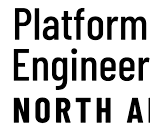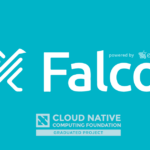
In today’s digital age, where sensitive data is increasingly stored in the cloud and organizations rely heavily on SaaS applications, ensuring robust security measures is paramount. This blog post will delve into the importance of Zero Trust principles for safeguarding SaaS applications, focusing on the critical role of CI/CD pipelines in development workflows.
The Need for Zero Trust:
With the rise of cloud-based services and the proliferation of SaaS applications, traditional security perimeters are becoming obsolete. Zero Trust, a security model that assumes no trust within or outside the network, offers a more effective approach to protecting sensitive data. By enforcing strict access controls and verifying every user and device before granting access, Zero Trust helps mitigate the risks associated with data breaches and unauthorized access.
Securing CI/CD Pipelines: A Zero Trust Perspective:
CI/CD (Continuous Integration/Continuous Delivery) pipelines are integral to modern software development practices. However, their central role also makes them prime targets for cyberattacks. By applying Zero Trust principles to CI/CD pipelines, organizations can significantly enhance their security posture.
Key Considerations for Securing SaaS Applications:
- Granular Access Controls: Implement fine-grained access controls to ensure that only authorized users can access specific resources within SaaS applications.
- Strong Authentication: Require strong authentication methods, such as multi-factor authentication (MFA), to verify user identities.
- Data Encryption: Encrypt sensitive data both at rest and in transit to protect it from unauthorized access.
- Regular Security Assessments: Conduct regular security assessments to identify vulnerabilities and address them promptly.
- Zero Trust Network Access (ZTNA): Utilize ZTNA to establish secure, point-to-point connections between users and applications, minimizing the attack surface.
Case Study: Securing GitLab with Zero Trust:
GitLab, a popular source code management and CI/CD platform, is a prime example of how Zero Trust can be applied to secure SaaS applications. By implementing ZTNA and enforcing granular access controls, organizations can protect GitLab repositories and CI/CD pipelines from unauthorized access and data breaches.
Conclusion:
In the face of evolving cybersecurity threats, adopting a Zero Trust approach is essential for safeguarding SaaS applications. By understanding the principles of Zero Trust and implementing best practices, organizations can effectively protect their sensitive data and maintain a strong security posture.
Join the upcoming workshop on September 4th to learn more about Zero Trust security and how to apply it to your SaaS applications. Register now to secure your spot!
Reference to the article– Twingate
Follow us for more updates!














